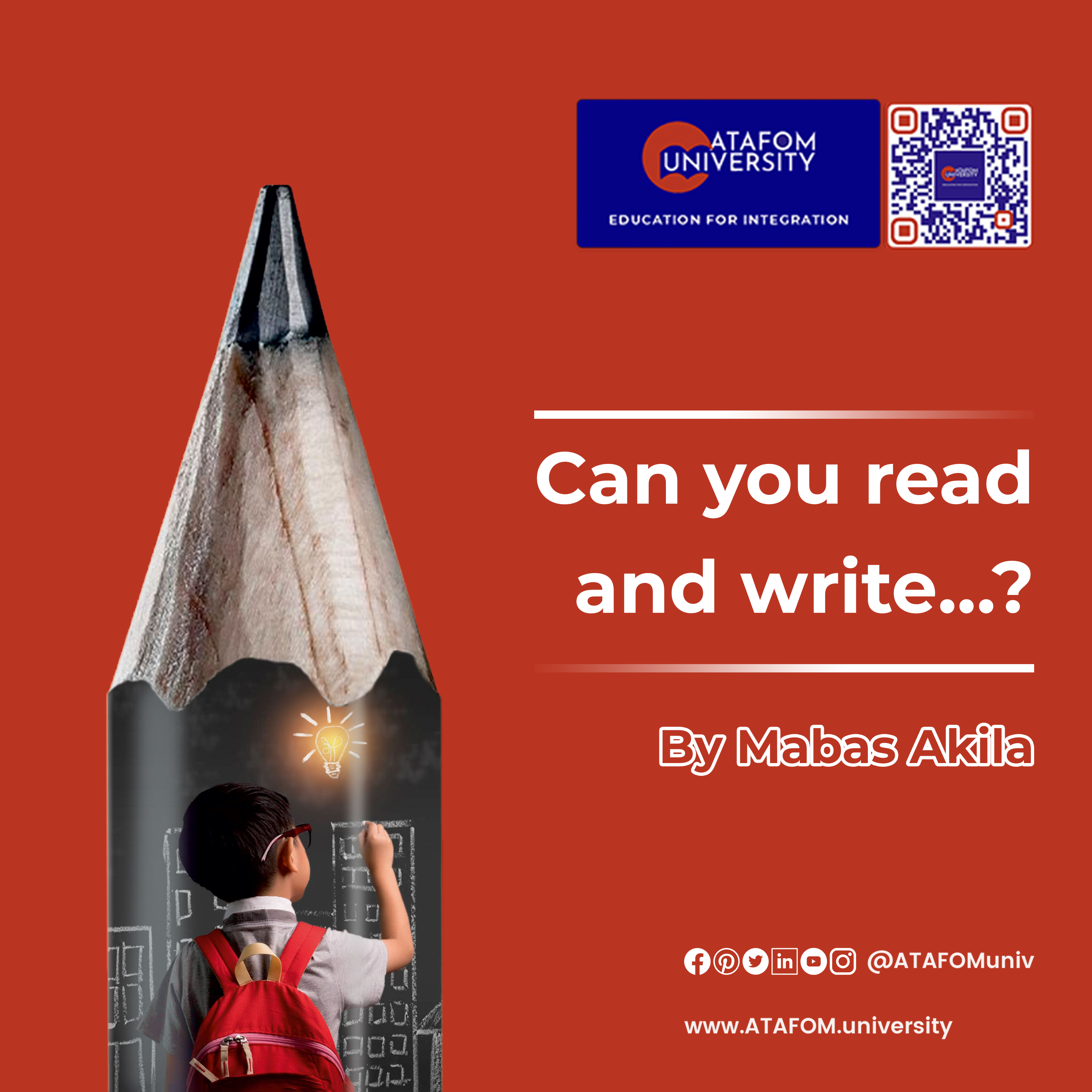Between 1976 and 2020, world literacy rate has significantly increased by 19.76% (from 66.92% to 86.68%). While this means over 86% of the world’s population can basically read and write, a significant 14% are unable to. In clearer terms, we are talking about 1.08billion illiterate people on earth. In regions such as Europe and Central Asia, the percentage is as low as 1.5; East Asia and the Pacific have 4.2% but the same cannot be said of South Asia with 21.1% and Sub Saharan Africa with 37.4% illiteracy rates respectively.
This is huge if we consider the current tides of modernisation, globalisation and universalism. The widened gap in literacy level between Africa/Middle East and the rest of the world is an educational emergency that needs national, regional and global intervention.
Well, if you can understand the letters, words and sentences of this article to this point, then your answer to the title is ‘YES’. This piece, therefore, is meant for you – anyone whose answer is ‘NO’ cannot understand and relate to the writing. It behoves on us who know how to read and write to teach, coach and mentor the illiterates. Reading and writing abilities do not develop naturally like other communicative components such as non-verbal and visual forms. It requires planning and being very intentional both for the learner and the teacher.
As the world celebrates International Day of Literacy, there are two things we intend to put forward in this article: firstly, teaching how to read and write requires understanding the learner and secondly, teaching how to read and write requires the teacher to be an expert in the language. Let’s look at these two ideas independently:
Teaching how to read and write requires understanding the learner
If the act of learning and teaching how to read would engage the young (between the ages of 3 to 15), there couldn’t be any much challenge – young people are more enthusiastic about learning and a formal school setting can handle that. However, illiteracy involves older ages from 15 upward where some have either dropped out due to several challenges such as security or outbreak of conflict, academic, economic, mental, and social factors. Learning to read and write at this stage becomes really tasking as it requires mental, cognitive and social skills to convince the learner that he/she needs such basic skill.
As surprising as it would appear to be, you could find the person next to you unable to read and write. The ability to speak in a particular language is not a guaranteed capacity in reading and writing and therefore wouldn’t amount to literacy. More so, most illiterate persons hardly have rich vocabulary and may find it difficult to express themselves very well. They are usually very shy to tell you their difficulty and would find excuses for not reading a passage. If they try to confront that, you may find them having difficulty pronouncing words or asking others to help read for them. Ultimately, they possess low self-esteem among their peers and try to speak less and engage in the conversation.
Your purpose as a literate person is not to ridicule them but downplay their deficiencies while offering a helping hand to polish their skills depending on the level of illiteracy. You could also help by conversing with simple vocabularies and telling them how much they can do better (in a very polite manner and especially when you have built trust amongst you). It would also be good to encourage them to attend a formal educational system even if they seem advanced in age. Some of them do, and they have every reason to be thankful for their decision.
Teaching how to read and write requires the teacher to be an expert in the language
Knowing how to read and write is more than making sense of the letters, words and sentences on a piece of paper. It is equally an art of knowing what to say or write, when, where, why, to whom, about whom and how. A mastery of a language will facilitate teaching of it while teaching the language will enhance mastery of it.
While expertise in the language doesn’t also guarantee good teaching skills, it is the first requirement for a good language teacher. “You can’t give what you do not have”, the popular saying goes. Knowing the language very well involves mastering the art of listening, speaking, writing and reading; it also requires the teacher to be able to explain grammatical components, parts of speech, syntax and punctuations in the simplest ways possible.
Of course, knowing your subject matter is only one of the numerous skills needed for a teacher of language to effectively teach how to read or write. Other components of the art are what we discussed in the first point above. From making sure you deliver robust knowledge through motivating the learners to understanding their learning needs, teaching reading and writing can be fun.
Conclusion
There is nothing wrong in identifying one’s deficiency in reading or writing in a particular language but there is everything wrong in not taking steps to reduce the level of illiteracy in society. When next you see an illiterate, what should you do? Should you laugh at their mistakes or laugh at your ignorance to see how you are the help they need?


